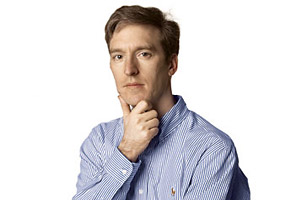
Not long after Freakonomics came out, Steven Levitt and I had a public debate at a salon in downtown Manhattan. The subject was crime. In my book The Tipping Point, I had argued that the cluster of innovative policing strategies known as "broken windows" played a big role in the dramatic drop in New York City's crime rate. Levitt and his co-author Stephen Dubner argued, to the contrary, that "broken windows" was an illusion and that other factors, like the demographic changes brought about by the legalization of abortion, played a much bigger role. It was a straightforward back-and-forth. Levitt got up and made his case. I got up and made mine. But halfway through, I glanced over at Levitt and had a realization that I'm not sure I've ever had before with an intellectual opponent — that if I made my case persuasively and cogently enough, he would change his mind. He was, in other words, listening.
This is not a great moment for listeners in American society. The public conversation is dominated by those whose minds are unalterably made up, and we have come to view the man or woman whose views remain steadfast, even in the face of overwhelmingly evidentiary assault, as a kind of moral hero. Those people are not heroes, of course. They're usually just stubborn.
In Freakonomics and in his astonishing, wide-ranging academic work at the University of Chicago, Levitt, 38, reminds us that we owe a bigger debt to those with the humility to go wherever logic and discovery lead them. Does the possibility that abortion reduces crime raise uncomfortable questions? Of course it does. But Levitt believes that if we are to have an honest conversation about things like crime and abortion, we are obliged to consider those phenomena in all their dimensions. It takes a certain amount of courage to make an argument like that. And by the way, if you can come up with some good evidence to the contrary, Levitt will listen, and if you're really convincing, he's the sort of person who will change his mind. That takes courage too.
Gladwell is the author of The Tipping Point and Blink